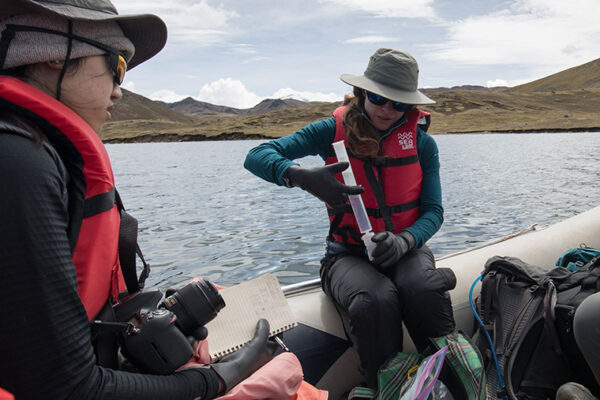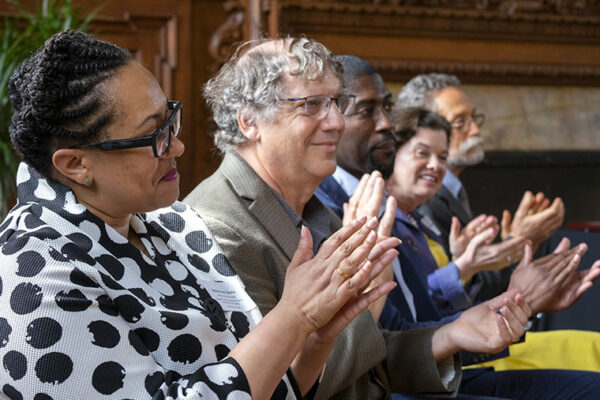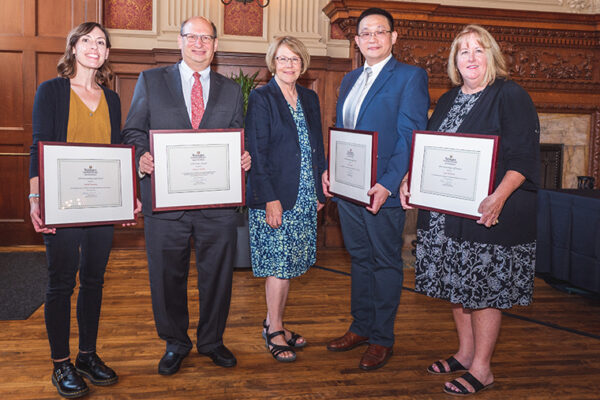Science seems like a nonpartisan endeavor, but this spring the National Cancer Institute; the National Heart, Lung and Blood Institute; the National Science Foundation; and the National Institutes of Health found themselves in the political crosshairs, with threatened budget cuts.
“[The cuts] were related to a wider national conversation about whether or not science is opinion versus fact,” says Barbara Schaal, dean of the faculty of Arts & Sciences and the Mary-Dell Chilton Professor in the Department of Biology. “Science oftentimes provides information that goes contrary to some people’s political agenda and their economic agenda.”
As past president of the American Association for the Advancement of Science, the world’s largest general scientific society, Schaal had to defend science and explain why it matters. Thanks to efforts like hers, the budget cuts never came to fruition and science funding for many institutions actually increased.
What is the importance of science?
Science is the basis for a great deal of the well being not only of the citizens of the world, our nation, but also countries themselves. And so that is the result of the kinds of discoveries that science makes and then the application of those things. So for example, if you look at the application of science, one of the major applications of course is in health care. And we wouldn’t have the health care that we have now if there wasn’t an understanding of the basic science: principles of physiology of molecular biology, how diseases are transmitted. Another example is agriculture. That’s a great example of an applied science, the science of how plants grow and how we can increase their yields. So our health and our food is the result of basic science discoveries.
Why do general scientific research?
When there was the initial project to sequence the human genome, there was a lot of pushback on that. What possible benefit could just knowing the sequence of DNA of a human be? And of course now with technological advances, we can sequence many people. We have an industry, 23 and Me. But what that ability to sequence the human genome has done is allowed us, for example, to go into specific cancers to sequence their genome, find the specific mutation and then target the therapies based on the DNA sequence. So this is a tremendous example that has immediately affected health and it’s a booming area with lots and lots of research at Washington University Medical School and a lot of different medical schools. So I think that’s a really good example of basic science and how important it’s been.
What’s the impact of government budget cuts on science?
There’s the actual funding of research, and then there’s also, I think, a perception of what’s going on in science. If a career in science is not particularly secure, you would choose an alternate career, because everybody has to have a job. You have to be able to support yourself. So that’s a tremendous concern, not only the short-term, the current projects that are going on, the projects that will be applied for in the next year, the next five years, but then what does this do to the whole attract-ability, the whole enterprise itself?


